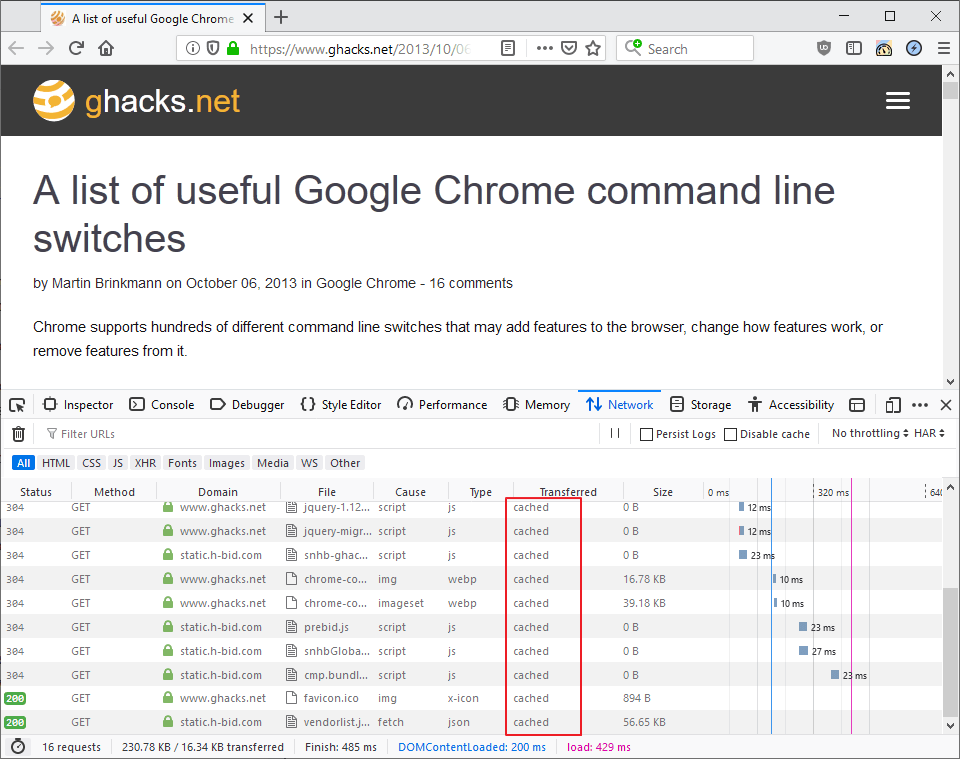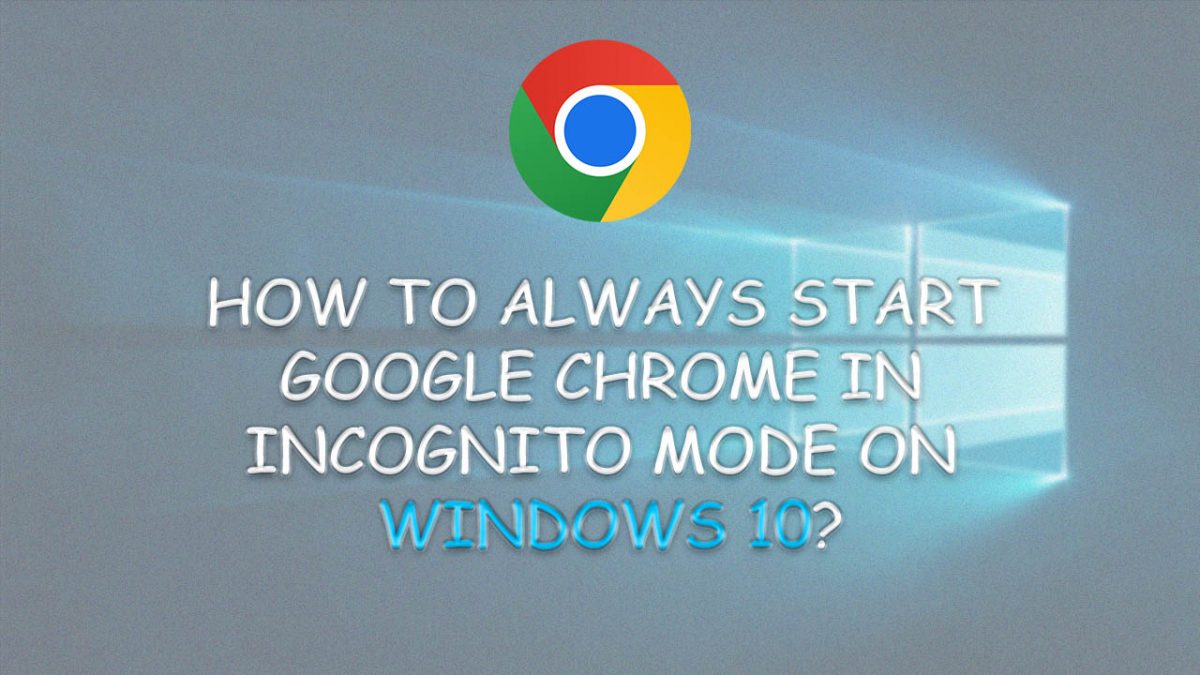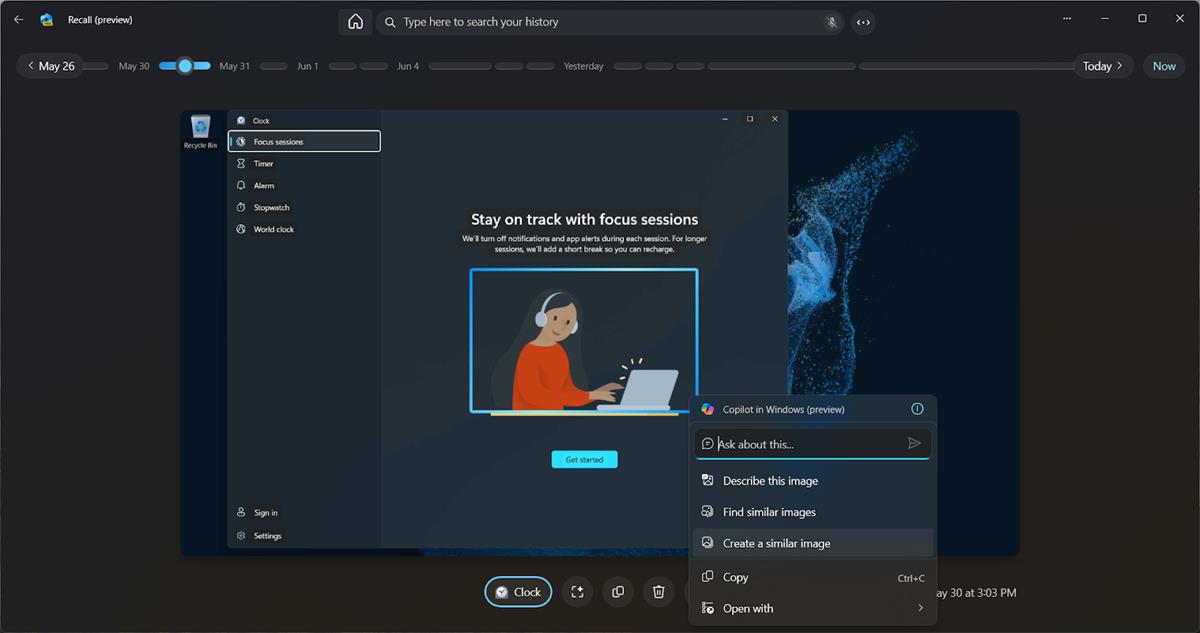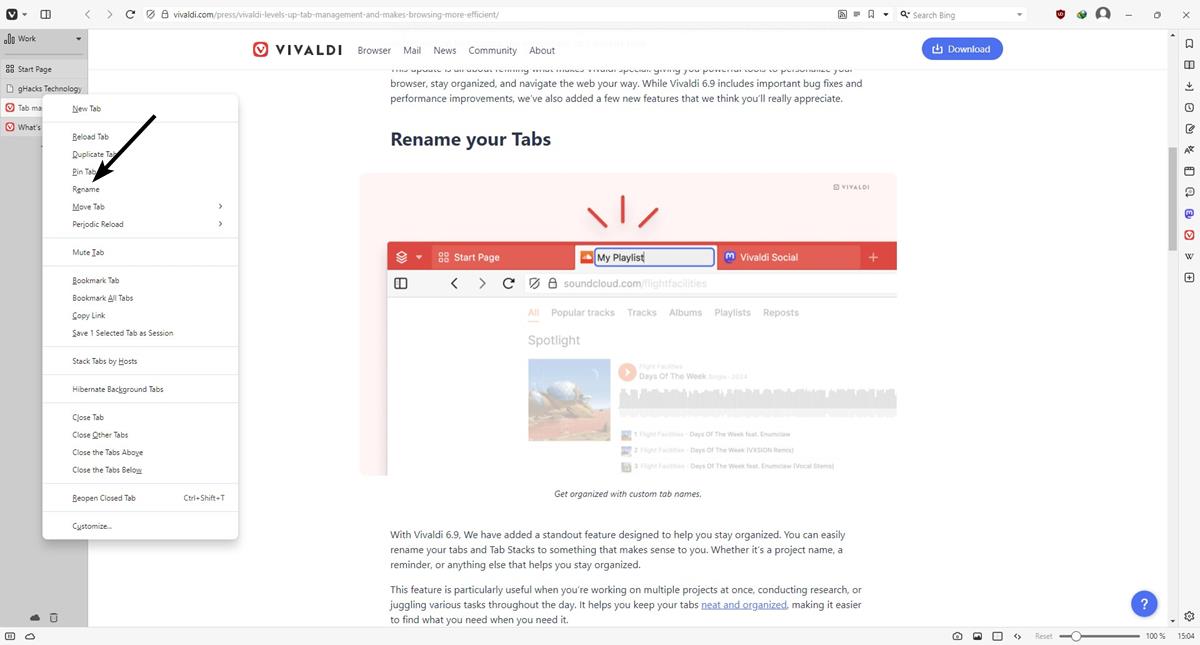Boostaler browser extension extends caching periods to speed up browsing

Boostaler is a browser extension for the Mozilla Firefox and Google Chrome web browsers that is designed to speed up web browsing by extending cache periods. The extension may work with other browsers based on Firefox or Chrome code as well.
Web browsers use a local cache for certain page elements to improve the loading time of web pages. Loading elements from the local hard drive is -- usually -- faster than loading them from a web server. Sometimes, it may be the only option to access a page, for instance if the web server can't process requests or other temporary issues.
Update: The Firefox extension is no longer available. We have uploaded the latest version to our own download server for archiving purposes. Note that it may not work properly anymore going forward as it won't be updated. Click on this link to download it: (Download Removed)
Boostaler

The Boostaler extension manipulates cache-control headers for requests so that resources are loaded from the cache for a longer period of time; the extension checks if new versions are available to make sure that the most recent version becomes available.
The developer describes the functionality in the following way:
This web-extension will reconfigure the cache-control headers for each of the requests for the page's resources (such as a CSS-file, images and media-files) allowing a much longer-period of time for each resource to stay in the browser-cache, but still checking to see if the resources is the most recent one available.
The extension changes the values of the Cache-Control header attributes stale-while-revalidate or stale-if-error, or adds them to the page if they don't exist in the Cache-Control header.
Boostaler increases the local cache time of web resources and that speeds up web browsing.
- Stale-while-revalidate -- sets extra time in which content is loaded from cache (stale asset) while it is revalidated asynchronously. The browser uses the cached resource and checks if a new version is available. Improves page load latencies.
- Stale-if-error -- defines the extra time in which a cached resources may be used if an error is encountered.
The effectiveness of the extension depends largely on usage and the use of cache-control headers by sites. Resources are loaded from cache for a longer period in best case, especially in situations where the attributes are not set at all or set to a low period.
Verification
You can verify that Boostaler is working correctly using the browser's Developer Tools. In Firefox, you'd press F12 to open the Developer Tools and switch to Network to see what is loaded and from where it is loaded.
In Chrome, you'd press Ctrl-Shift-I, make sure Network is selected. Note that you see the effect on the second time the page or resources from the site are loaded. The resources need to be stored in the cache first before they can be loaded from it.
You should see an increase in cached resources when you reload the page or access other pages on the site that use the same resource, e.g. a logo or CSS style file.
Closing Words
Boostaler is a great, greatly underappreciated browser extension that may improve the loading of resources significantly. Helpful especially on sites that you visit regularly that may use low caching values or set no values at all.



























And it’s gone again from the Chrome Web Store
I’m having issues releasing all of the web-extensions (over 50),
with Chrome’s store 20-extension limit, disabling the less popular ones,
(and archiving them) does not seems to work, or might be taking few days (?),
I’ve instead put all my releases in GitHub, for you to get.
Chrome users needs to download the zip from https://github.com/eladkarako/chrome_extensions/releases/tag/LatestChrome
extract it somewhere, and on ‘chrome://extensions’ check the checkbox of ‘developer mode’, opening the path to the web-extension.
It should work the same as from the store.
hey Elad Karako
please upload your chrome addon
Also at GitHub (Mozilla signed)
https://github.com/eladkarako/chrome_extensions/releases/
Not anymore
It’s back!
The Boostaler Chrome extension isn’t available anymore either:
https://chrome.google.com/webstore/detail/boostaler/jckhjkeamaabikcpkgchmnkcflnibahk
Why was it removed?
I ask the same question !
It is still in the Chrome Store
Removed from AMO? https://addons.mozilla.org/en-US/firefox/addon/boostaler/ “Oops! We can’t find that page”
Is this boostaler d/l corrupt? I d/l it twice and it won’t open the zip file.
Yes, it’s downloading some HTML page when I try to d/l the linked file.
The correct d/l link is:
https://github.com/vandread666/GhacksFiles/raw/master/Firefox/Boostaler.zip
hey, just a quick note, my old ‘Boostaler.zip’ linked in here is not advised for newer browsers, ‘webRequest.onHeadersReceived’ creates a bottleneck for network requests. I’ve created a newer version for manifest v3 with declarativeNetRequest.
Thanks Dave, I have corrected the link!
The brief delay was while the browser checked with the server that the page had not changed. With this extension it displays the cached copy while the check happens.
I’m on the latest Chrome stable and there doesn’t seem to be anything about “enable-stale-while-revalidate” in the chrome flags?
Google added this to the browser natively, no need to activate anymore.
For info
another extension, compatible with boostaler, according to the author
https://addons.mozilla.org/fr/firefox/addon/speedy-rendering-webext/
Works for me. It makes pages load twice as fast, for some it’s even instantaneous, like ghacks.net, which always loaded so quickly it felt it was stored on my computer, not on the internet. Now it’s even faster, although I can’t really explain how.
Other websites like youtube.com and store.steampowered.com and steamcommunity.com which previously had a brief delay when loading content now load almost instantaneously…
Good extension. A new must have on my list along with the content blockers.
I’ve installed Boostaler but I had to remember that the extension does boost, or boosts longer than the browser’s native settings because it increases the cache duration (checking meanwhile for updated cached items) … and not because it would increase the page rendering on first visit : may sound naive but I first told myself “Hey, old chap, pages don’t appear more quickly!” to what I replied (I sometimes have thrilling conversations with myself) “that’s because your pages weren’t cached yet!”.
Then I wondered what these cache-control periods were, those native and those proposed by Boostaler. I think the developer mentions 24hours for his extension (and re-initialized when the cache has been updated behind the scene but I searched unsuccessfully what Firefox cache periods are; as to what I understood no one really knows but many agree to say it all depends… of a certain number of factors. So in fact I remain a bit puzzled (I often am). Personally I often clear the cache (by exiting Firefox, mainly) more often than every 24 hours so maybe this extension is like winning a yacht when you can’t afford to pay your very rent, see what I mean?!
I also would have wished to ask the developer if Boostaler managed memory cache as well as disk cache. Reading this article and checking the Network tab of the Developer’s Tool (I should have recalled this obvious checking but I’m not a fan of that tool to put it mildly) I indeed notice the cached items… but they’d be cached anyway, no? Point is they’d be cached for a shorter period of time. OK.
The developer who seems to code substantially is unfortunately contactable only on his extensions’ AMO reviews (and maybe on Chrome’s extension pages) where he answered users comments quickly up to now, but no email and his GitHub repository doesn’t include the ‘Issues’ pages, which may be unfortunate for users as myself who don’t wish to register for the nth time just to ask a question (or several) to the developer. Pity. But he does provide interesting work, need to say.
Anyway a nice hide and seek extension (cache-cache, the game’s name in French!)
And this header is not implemented in Firefox – https://bugzilla.mozilla.org/show_bug.cgi?id=995651
Since Chrome 75 stale-while-revalidate is enabled by default: https://bugs.chromium.org/p/chromium/issues/detail?id=348877#c90, so no need to turn on anything if you’re on Chrome 75+.
Don’t know if the extension really works though (see comment above).
Also what is really weird / suspicious, he is uploading all CSS and JS in “_.7z” files. Why would you upload your code in a compressed archive that makes it harder to diff to GitHub?
The author’s not using Github to open-source his extensions but just for a formatted readme. The 7z archives are either password-locked and/or have its source files obfuscated.
This makes it even more suspicious, as you can view the extension source code anyway using for example “Chrome extension source viewer”.
@Jacob Groß, I don’t quite understand your comment’s logic. Seems to me if suspicion there is it’d rather be validated by an inaccessible source code when, as you mention it, anyone can view it, be it by a dedicated extension either by simply downloading/unzipping its installer. Nothing is secret, maybe the right word is “preserved”?
And why on earth would he want to actively hide the source code??
It is impossible to manipulate the caching time. This extension simply doesn’t work; https://developer.chrome.com/extensions/webRequest
“The caching directives are processed before this event is triggered, so modifying headers such as Cache-Control has no influence on the browser’s cache.”
Very useful article, it helped me a lot. Thanks @Martin! 😊
So why don’t browsers do this by default then? If it checks for changes too then what are the downsides? btw Brave doesn’t have the flag it says to change, #enable-stale-while-revalidate
Browsers respect websites’ decisions on what to cache and for how long. Possible downsides to modifying cache behavior that I can think of is: (1) extra ram/disk space usage and (2) filling the cache sooner which may then lead to discarding useful resources and waste bandwidth.
I’d like a way to completely disable the caching on Chromium. One solution is to run it with the -incognito flag, but it’s not the best out there, especially since Chromium likes to launch a regular window every time you want to access something like the bookmarks manager or settings, annoyingly enough…
Have you tried playing with the many cache-related flags for chromium?
https://peter.sh/experiments/chromium-command-line-switches/
Last time I tried chromium, I gave up after failing to reduce the amount of disk writes wearing out my SSD. I remember there being switches for JS (V8), media, and disk among others.